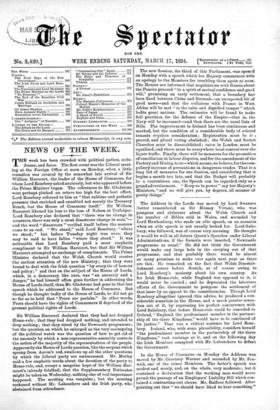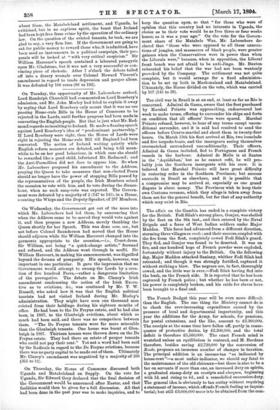In the House of Commons on Monday the Address was
moved by Mr. Courtney Warner and seconded by Mr. Fen- wick, one of the miner Members. The latter's speech was modest and manly, and, on the whole, very moderate ; but it contained a declaration that the working men would never permit the passage of an Employers' Liability Bill which con- tained a contracting-out clause. Mr. Balfour followed. After pointing out that " we should have liked to hear something" about Siam, the Matabeleland settlement, and Uganda, he criticised, but in no captious spirit, the boast that Ireland had been kept free from crime by the operation of the ordinary law. On the question of the evicted tenants, he took, we are glad to say, a very firm line. If the Government are going to ask for public money to reward those who, it is admitted, have been used as instruments in a political campaign, their prc- posals will be looked at " with very critical suspicion." Sir William Harcourt's speech contained a laboured panegyric upon Mr. Gladstone, but it was not a very successful or con- vincing piece of rhetoric. After 7 o'clock the debate tailed off into a dreary wrangle over Colonel Howard Vincent's amendment in regard to trade depression and pauper aliens. It was defeated by 106 votes (86 to 192).



































